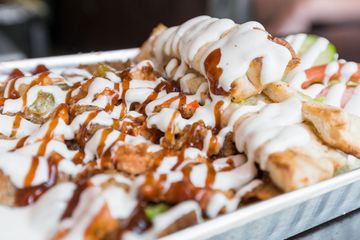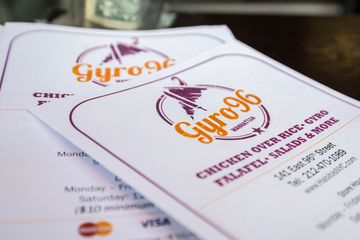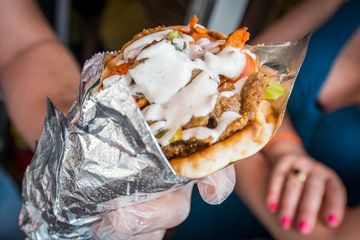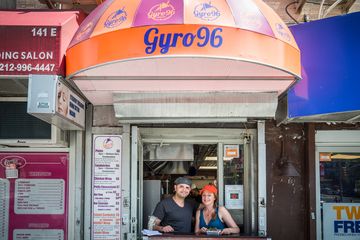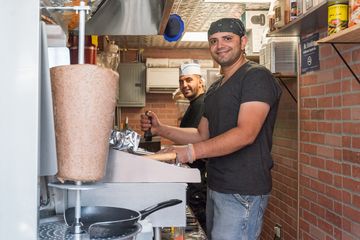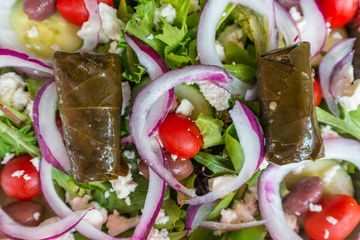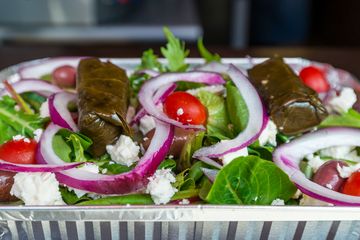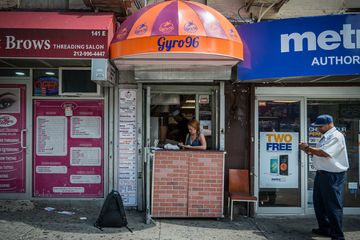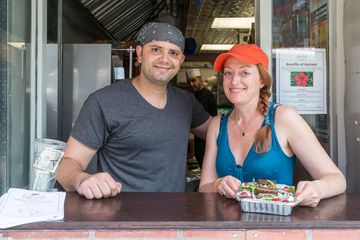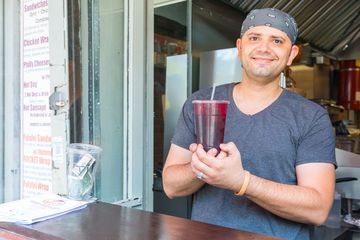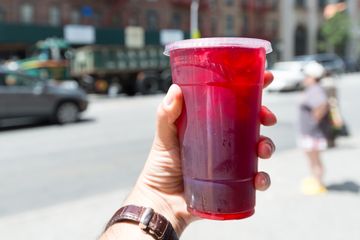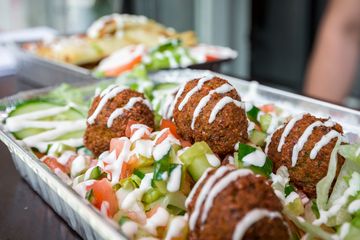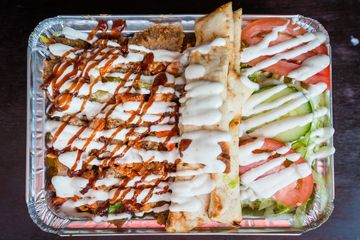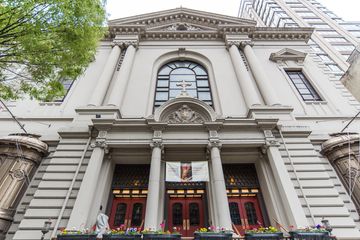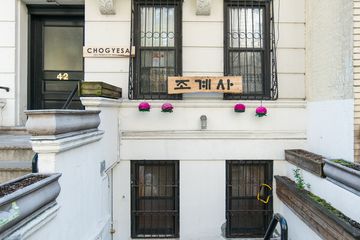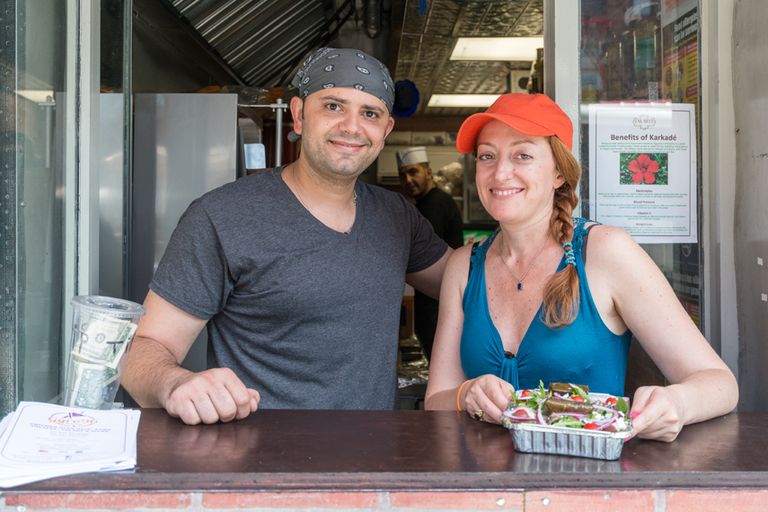
When I walked East 96th Street in June 2016, I arrived ten minutes before Gyro 96 was to open its small window into eighty-five square feet of sumptuous Egyptian food. Expecting to be the first one there, I was slightly taken aback to see a small huddle of children, construction workers, working moms, and police men already chatting by the window. In fact, even before the passionate duo of owners, Waled Haredy and Inna Sobel, could serve me their choicest bites, a friendly resident told me what to expect – “it’s the best falafel in the world.”
Waled’s ardor to cook food that is “clean and made with love” is rooted in 100-year-old recipes passed down from his Egyptian family. While growing up in Saudi Arabia, he savored tastes and spices from Egypt, Sudan, Pakistan, and India. While I marveled at his diversity of cuisine, it was his persistent dedication to making food as it was made in his home – fresh, and healthy. He told me, “we had a rule in the kitchen: we never kept hummus the day after it’s made. If there is any left at the end of a day, we throw it out and make a fresh batch the very next morning.” Gyro 96, although priced just as affordably as most halal trucks in the city, distinguishes itself in offering the balance between inexpensive fast-food and freshly-cooked sit-down meals.
Inna - a real estate worker who believed in Waled’s food and insisted that he move from his previous locations in Harlem and the West Village to 96th Street - confirmed what I could see in their every interaction with their customers – “we try our best to keep them returning for new dishes.” Indeed, one of their greatest fans came down from her work in the Bronx to eat at Gyro 96, as she claims to do almost every day. When I asked her what keeps her coming back, “I come here six days a week and find a new bite to try every time.” I couldn’t wait to have Waled cook up his most prized flavors for me."
Before biting into any of the food, I sipped on karkadé, a deep crimson respite from the oppressive heat of June, and truly a power drink. Originally extracted from hibiscus flowers along the border of Egypt & Sudan, karkadé was a drink for the Gods and pharaohs. Waled brought the tea, now proven rich in antioxidants, vitamin C, and weight-regulating nutrients, to the US in 2005. I delighted in the delicately sweet tones of this refresher. His renowned falafels, the secret recipe for which I unfortunately could not pry out of Waled, were crunchy and wholesome in every bite – a texture that comes only with a special style of cooking the chickpeas. Gyro 96’s hummus and tahina sauces were light and laced with tangs of ripe olives and grape leaves. But beware of the hot sauce. It packs as much of a flavorful kick as it does a spicy heat when served with the eggplant over basmati – an Indian rice which he claims works best with his cuisine. After sampling this last enigmatic dish, I was more curious about the story behind its name than the tastes itself – The Rocket.
Waled grew up with a strict father (“as they tend to be in Upper Egypt,” he says). His father wanted Waled, the eldest son, to follow closely in his footsteps; but when his appetite for duck contrasted with Waled’s distaste for it, the apple fell a tad bit too far from the tree. Waled’s father insisted that he eat duck when served, to which Waled refused and would go hungry instead. His mother, sympathetic, would offer him two Egyptian pounds to buy himself a meal elsewhere. Going to the local falafel seller, Waled would give up his money and ask the seller to put in whatever ingredients he had. And so at nine years old, when Waled saw a wrap with falafel, hummus, eggplant, fries, tomato, Egyptian pickles, cilantro, hardboiled eggs, and tahini sauce all in one, his childlike imagination could only dream up one name for the dish - The Rocket.
Inna and Waled are culinary stars in their neighborhood, and it is a wonder they do it out of a small window at such affordable prices. Although rent is high, the two are committed to keeping their prices low and expanding their customer base outside the area. Their customers, often working late into the night, are always disappointed when they close in the evenings, but do not fail to greet the duo with bright smiles as they pass by again in the morning. Conversation flows when such friendly faces serve you karkadé, falafels, chicken gyro, and more at a range of $3 - $6. After all, as Waled asserted, “good food doesn’t need to be expensive. Good food doesn’t need a reservation. Good food just needs love.”
